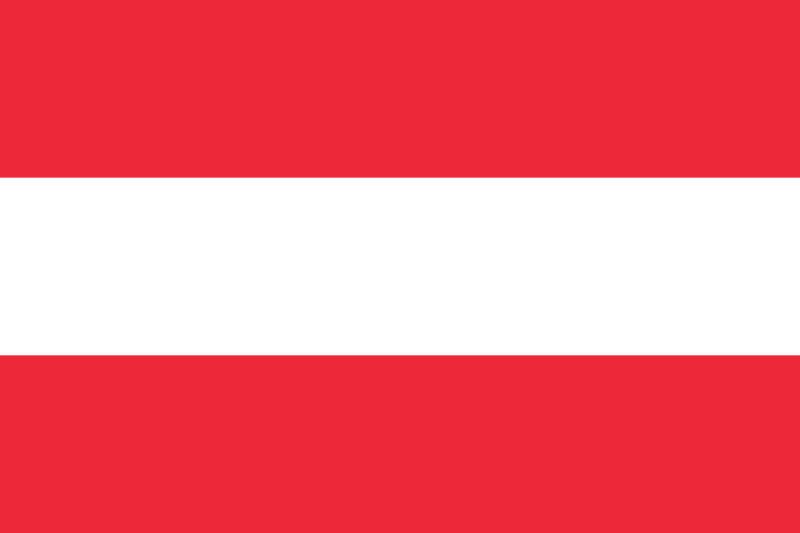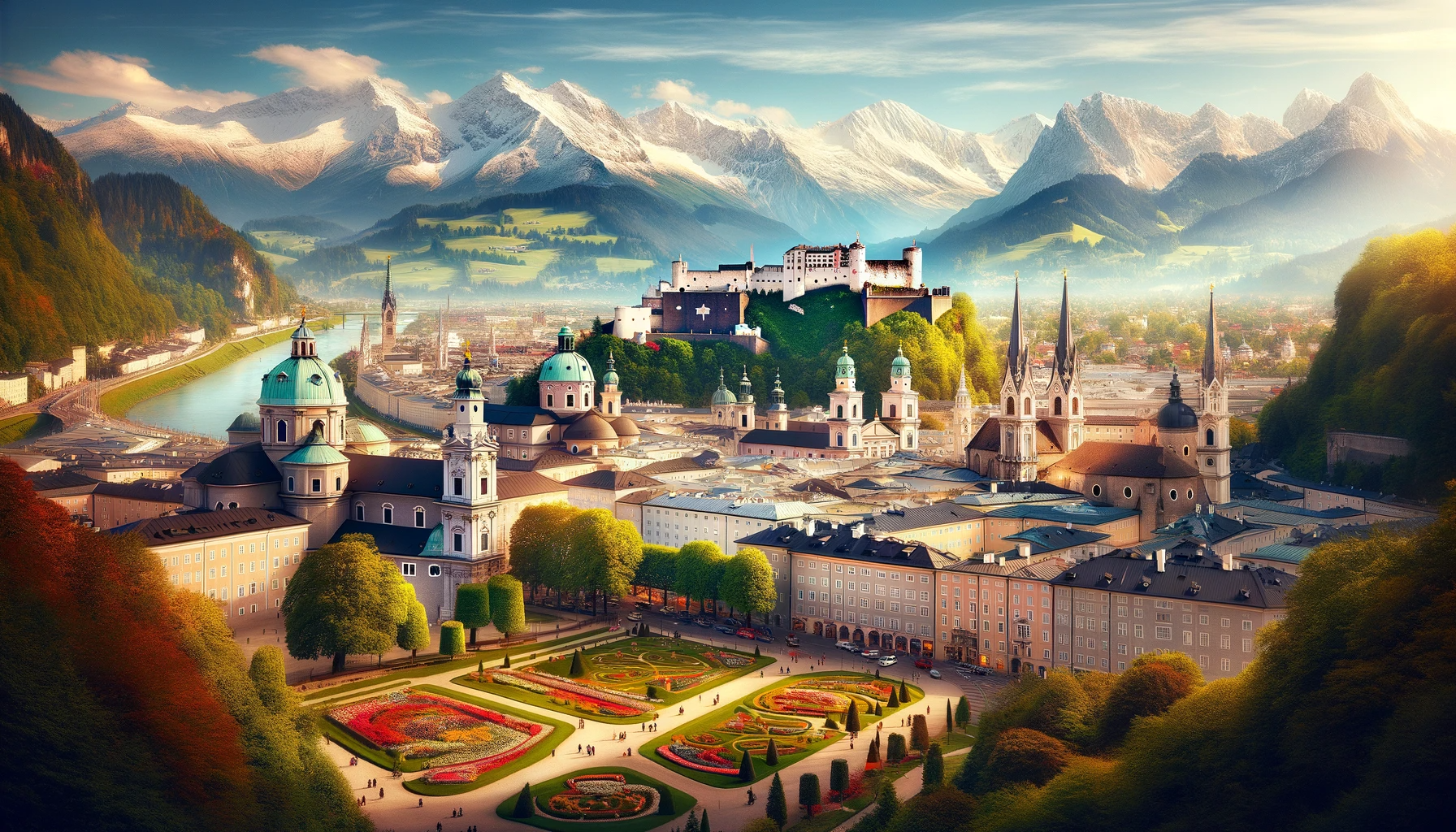Austria, nestled in the heart of Europe, is known for its rich history, cultural heritage, and stunning alpine landscapes. Covering approximately 83,879 square kilometers, it’s a land of diverse geography, from majestic mountains to serene lakes. Vienna, the capital, is a hub of art, music, and historical grandeur.
The country is divided into nine states, each with its unique charm. Austria’s highest point, the Grossglockner mountain, towers at 3,798 meters, while the Neusiedler See, at 115 meters, is its lowest point. Home to about 8.9 million people, Austria prides itself on its culinary delights, especially the Wiener Schnitzel.
The following days are public holidays in Austria 2024
- New Year’s Day – Monday, January 1, 2024
- Epiphany – Saturday, January 6, 2024
- Easter Monday – Monday, April 1, 2024
- Labour Day – Wednesday, May 1, 2024
- Ascension Day – Thursday, May 9, 2024
- Whit Monday – Monday, May 20, 2024
- Corpus Christi – Thursday, May 30, 2024
- Assumption Day – Thursday, August 15, 2024
- National Day – Saturday, October 26, 2024
- All Saints’ Day – Friday, November 1, 2024
- Immaculate Conception – Sunday, December 8, 2024
- Christmas Day – Wednesday, December 25, 2024
- St. Stephen’s Day – Thursday, December 26, 2024
Country Profile Austria
- Full name: Republic of Austria
- Population: 8.9 million (UN, 2022)
- Capital: Vienna
- Area: 83,871 sq km (32,383 sq miles)
- Internet domain: .at
- International dialling code: +43

History
- Early and Medieval History: Austria’s history dates back to the Roman Empire when the area was a Celtic kingdom. During the Middle Ages, it became a significant part of the Holy Roman Empire.
- Habsburg Dynasty: The Habsburgs ruled Austria for centuries, shaping its European and global influence, particularly during the Austro-Hungarian Empire.
- World War I and Aftermath: The end of World War I in 1918 led to the dissolution of the Austro-Hungarian Empire, and Austria became a republic.
- World War II and Post-War Era: Annexed by Nazi Germany in 1938, Austria suffered greatly during WWII. After liberation, it was occupied by the Allies until 1955, when it regained full independence and declared permanent neutrality.
Geography
- Location and Landscape: Landlocked in Central Europe, bordered by Germany, Czech Republic, Slovakia, Hungary, Slovenia, Italy, Switzerland, and Liechtenstein. Known for its mountainous terrain, especially the Alps.
- Climate: Predominantly continental with cold winters and warm summers. Alpine regions have longer winters and shorter summers.
- Environmental Initiatives: Strong emphasis on environmental protection and sustainable practices.
Culture
- Arts and Music: Renowned for its historical contribution to music, being the birthplace of composers like Mozart, Beethoven, and Strauss. Vienna, the capital, is often called the “City of Music.”
- Architecture: Famous for its Baroque architecture, with significant landmarks like Schönbrunn Palace and Belvedere Palace.
- Traditions and Festivals: Rich in traditions, including the Vienna Opera Ball, and cultural festivals like the Salzburg Festival.
- Language: German is the official language, with local dialects and minority languages like Slovenian, Croatian, and Hungarian.
Economy
- Key Sectors: Strong industrial base, with machinery, metallurgical products, and textiles. Significant service sector, especially tourism, banking, and insurance.
- Trade and Investment: Highly developed social market economy with a high standard of living. Member of the European Union and the Eurozone.
- Challenges: Like many developed nations, faces challenges such as an aging population and the need for economic diversification.
Politics
- Government Structure: Federal parliamentary republic. The Federal President is the head of state, and the Chancellor is the head of government.
- Political Landscape: Known for its stable political environment, with major political parties spanning the center-left to the center-right.
- International Relations: Active in international affairs, especially within the EU. Permanent neutrality in military conflicts.
Society
- Population and Demographics: A population characterized by a high standard of living, education, and social security. Vienna is the largest city and cultural and economic center.
- Healthcare and Education: Universal healthcare system and a free and compulsory education system.
- Social Issues: Debates on immigration, integration, and social policies are prominent in public discourse.
Science and Technology
- Research and Innovation: Focus on R&D in sectors like environmental technology, energy, life sciences, and information technology.
- Technology Adoption: High level of technological infrastructure and adoption, particularly in urban areas.
Arts and Literature
- Literary Tradition: Rich literary tradition with notable authors like Stefan Zweig, Thomas Bernhard, and Elfriede Jelinek (Nobel Prize in Literature).
- Visual Arts: Home to renowned artists like Gustav Klimt and Egon Schiele, with a vibrant contemporary art scene.
Sports
- Popular Sports: Skiing is a national passion, with Austria having a strong presence in alpine skiing. Other popular sports include soccer, Formula 1 racing, and tennis.
- Sporting Events: Hosts numerous international sporting events, especially winter sports in the Alps.
International Relations
- Foreign Policy: Committed to the EU and international cooperation, with an emphasis on human rights and development aid.
- Neutral Stance: Maintains a policy of neutrality, not participating in military alliances.
In summary, Austria is a nation with a rich historical legacy, a strong commitment to cultural arts, and a high standard of living. It plays a significant role in European politics and economics, balancing its rich cultural heritage with modern innovation and development. The country continues to navigate contemporary challenges, striving to maintain its tradition of stability, neutrality, and social welfare.
Public Holidays Europe (EMEA)

